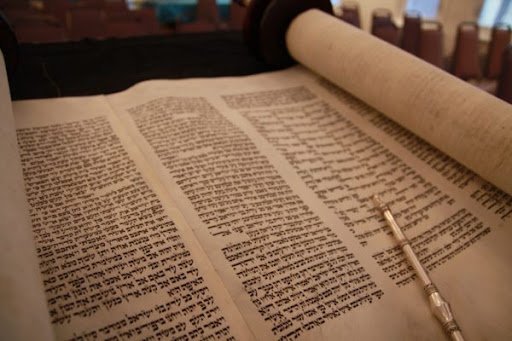Jewish weddings are rich with symbolism, tradition, and spirituality, creating a tapestry of customs that bind generations together. Among the most meaningful pre-wedding rituals is Shabbat Hatan, also known as the Groom’s Shabbat. This deeply cherished celebration highlights the groom’s new spiritual role within Jewish life and connects the couple to their community, faith, and heritage.
Celebrated on the Shabbat before the wedding—or in some traditions, immediately after the wedding—Shabbat Hatan provides an opportunity for family and friends to gather, offer blessings, and strengthen the sacred union. This article explores the origins, customs, and spiritual depth of Shabbat Hatan, along with how it is observed across different Jewish communities today.
The Meaning of Shabbat Hatan
The Hebrew phrase “Shabbat Hatan” literally means “Groom’s Sabbath.” It is a time when the groom (hatan) is honored by the congregation and takes on a central role during the Shabbat service. This event symbolizes not only his personal joy but also the collective celebration of the community.
At its core, Shabbat Hatan emphasizes:
- Spiritual preparation for marriage.
- Communal support for the new couple.
- Public acknowledgment of the groom’s new responsibilities.
Historical Origins of Shabbat Hatan
The tradition of honoring the groom during Shabbat has its roots in Talmudic times. Ancient Jewish communities emphasized the importance of preparing spiritually for marriage, not only with festive meals but also through Torah study, blessings, and public acknowledgment.
Over centuries, customs evolved, influenced by regional traditions:
- Sephardic communities often hold Shabbat Hatan on the Shabbat before the wedding.
- Ashkenazi communities sometimes celebrate it on the Shabbat after the wedding, known as Shabbat Sheva Brachot, part of the week-long festivities of Sheva Brachot (Seven Blessings).
Customs and Traditions of Shabbat Hatan
1. Aliyah to the Torah
One of the most important honors of Shabbat Hatan is the groom’s aliyah—being called up to the Torah. This symbolic act reflects his readiness to build a household rooted in Torah values.
2. Community Blessings
The congregation offers blessings and well wishes to the groom, reinforcing the communal nature of Jewish marriage.
3. Festive Meals (Seudot)
Families host festive meals where relatives and friends gather to celebrate. Songs, toasts, and words of Torah elevate the atmosphere.
4. Groom’s Speech
The groom often delivers a short d’var Torah (Torah lesson), reflecting his commitment to Jewish learning and leadership.
The Bride’s Role During Shabbat Hatan
While the groom is the central figure, the bride (kallah) is equally celebrated. In some communities, women host separate gatherings in honor of the kallah, where she receives blessings, gifts, and words of encouragement.
Regional Variations
Sephardic Traditions
- Shabbat Hatan is usually held the Shabbat before the wedding.
- Celebrations can be very elaborate, with large festive meals.
- The groom is often showered with blessings and songs from family members.
Ashkenazi Traditions
- Often celebrated on the Shabbat after the wedding.
- This Shabbat is part of Sheva Brachot, extending the joy of the wedding for a full week.
Symbolism of Shabbat Hatan
Shabbat Hatan represents more than a pre-wedding party. It symbolizes:
- Holiness of marriage: By tying the wedding to Torah and Shabbat.
- Continuity of Jewish tradition: The groom’s aliyah links him to generations before.
- Communal responsibility: The marriage is not just a private affair, but one shared with the entire community.
Spiritual Preparation for Marriage
In addition to celebration, Shabbat Hatan serves as spiritual preparation. The groom immerses himself in Torah study, prayer, and reflection on his responsibilities as a future husband.
This preparation echoes the Jewish view of marriage: not only as a union of love, but as a covenantal partnership dedicated to building a home filled with faith and kindness.
Shabbat Hatan in Modern Times
Today, Shabbat Hatan continues to thrive in Jewish communities around the world. In Israel, North America, and Europe, synagogues honor grooms with aliyot, while families host festive meals. Even in smaller communities, the essence remains the same: a communal blessing for a new stage in life.
Shabbat Hatan and Sheva Brachot
When celebrated after the wedding, Shabbat Hatan becomes part of the Sheva Brachot week. These seven days of blessings highlight the joy of marriage, and Shabbat serves as the central and most festive day.
Etiquette for Guests
If you are invited to Shabbat Hatan, it is customary to:
- Bring a small gift or book of Jewish learning.
- Share blessings and warm wishes with the groom and bride.
- Participate in the songs, prayers, and celebrations.
Shabbat Hatan and Community Bonding
One of the most profound aspects of Shabbat Hatan is how it strengthens community ties. The couple is not beginning their journey alone; they are surrounded by love, guidance, and support from family and friends.
Paamonim Hotel: The Perfect Stay for Shabbat Hatan in Jerusalem
For families and guests traveling to Jerusalem to celebrate Shabbat Hatan, choosing the right accommodation is essential. Paamonim Hotel, located in the heart of the city, is a perfect choice. Known for its warm hospitality, modern amenities, and proximity to Jerusalem’s historic synagogues and cultural landmarks, the hotel provides an ideal setting for wedding-related celebrations. Guests appreciate its elegant rooms, welcoming atmosphere, and easy access to the Old City, making it both a convenient and meaningful place to stay. Whether you are in town for Shabbat Hatan or exploring the city’s rich heritage, Paamonim Hotel ensures a comfortable and memorable experience.
Conclusion
Shabbat Hatan is a beautiful tradition that bridges past and present, spirituality and community, joy and responsibility. It reminds us that marriage is not only a bond between two individuals but also a celebration of Jewish continuity and shared faith.
As grooms are called to the Torah, communities rejoice, and families gather around festive meals, Shabbat Hatan continues to shine as one of the most cherished pre-wedding customs in Jewish life. Whether in ancient synagogues or modern cities, this tradition ensures that every marriage begins with blessings, faith, and joy.







